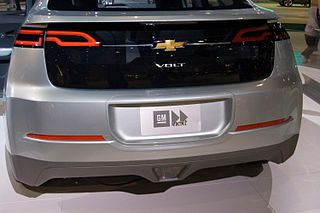From Guest Blogger Blake Meredith: The Evolution of Electric Car Conversions

History of Vehicles with Electric Motors
Electric vehicles were actually the first modes of private transportation, before gas-powered cars. From the mid-19th century through the first few decades of the 20th century, the electric car was far more popular than ones with a combustion engine. But by the 1920s, the gas engine had been simplified enough that anyone could operate it, and since a tank of gas lasted much longer than any electric battery charge, consumers opted for gasoline. It took until the 1990s before the electric vehicle made a resurgence, due to desires for cleaner and cheaper energy than gasoline. Though it took until 2001, when the Toyota Prius became the first mass-produced hybrid, it seems that electric cars and gasoline-electric hybrids are here to stay.
Ecological Benefits of an Electric Motor Vehicle
There is no doubt that vehicles that utilize an electric motor are ecologically superior to their gasoline-using competitors. Overall, an electric vehicle results in only one-half to one-third of the CO2 release that gas cars produce. Further, electric cars emit practically no pollutants into the air while being driven and are even much quieter. Unfortunately, the energy required to charge an electric vehicle is not perfect and (contrary to popular belief!) is not completely environmentally friendly. However, it is true that the effect these cars have on the environment pales in comparison to the damage done by non-electric vehicles.
How to Convert Your Combustion Engine to Electric
The process to convert a petroleum-powered engine to electric is actually less complex than most people would guess. The first step is to select a lightweight, manual-transmission vehicle. Second, acquire a DC electric motor with a controller – motors from forklifts are frequently good candidates. Third, find a system of batteries that total more than 144 volts and 80 amp hours; options include gel-cell batteries, lead-acid batteries, and lithium ion batteries, depending on your price range. Fourth, remove the old engine from the vehicle along with any gas-related parts. Fifth, install the motor and batteries, then connect the ignition to the contactor for starting the engine. Finally, build or buy a conversion kit to recharge the batteries.
Home Charging Stations
Since the dawn of the electric vehicle, home charging stations have surged in popularity and ease of access. It is now possible to drive to your local hardware store and simply buy a home charger for your electric vehicle, for about $600-700 to be installed by an electrician. It is also possible to build a charger at home, though it requires significant electronics experience and careful handling; charging stations usually run up to 240 volts, which is very dangerous. Internationally, there are many different standards and requirements for home charging stations, so make sure the charging station matches the kind of battery and system the car needs, whether it is hybrid or completely electric. Since you’ll also be increasing your home electric usage, it’s wise to request that your power company change your energy plan to partial or full renewable energy (more information here on that process).
Buying an Electric Car versus Converting to an Electric Car
Buying a hybrid would cost at least $20,000, and purchasing an electric car is even more, coming in around $30,000. While these cars are certainly better than their non-electric counterparts, there is another solution that is even more eco-friendly and frugally sensible. Building your own electric vehicle can cost anywhere between $3,000 and $10,000 depending on where you can find the necessary parts – 10% the cost of a new electric car. Furthermore, when building an electric car it is likely that that you would be recycling parts from other cars that might have otherwise been junked or gone unused, resulting in an additional help to the environment.
Electric cars have come a long way since the small electric motors of the 19th century. Today, as easy as it is to buy an electric vehicle at home along with a home charging station, it is also worthwhile to give new life to an old car as you support the environment and keep money in your bank account.
